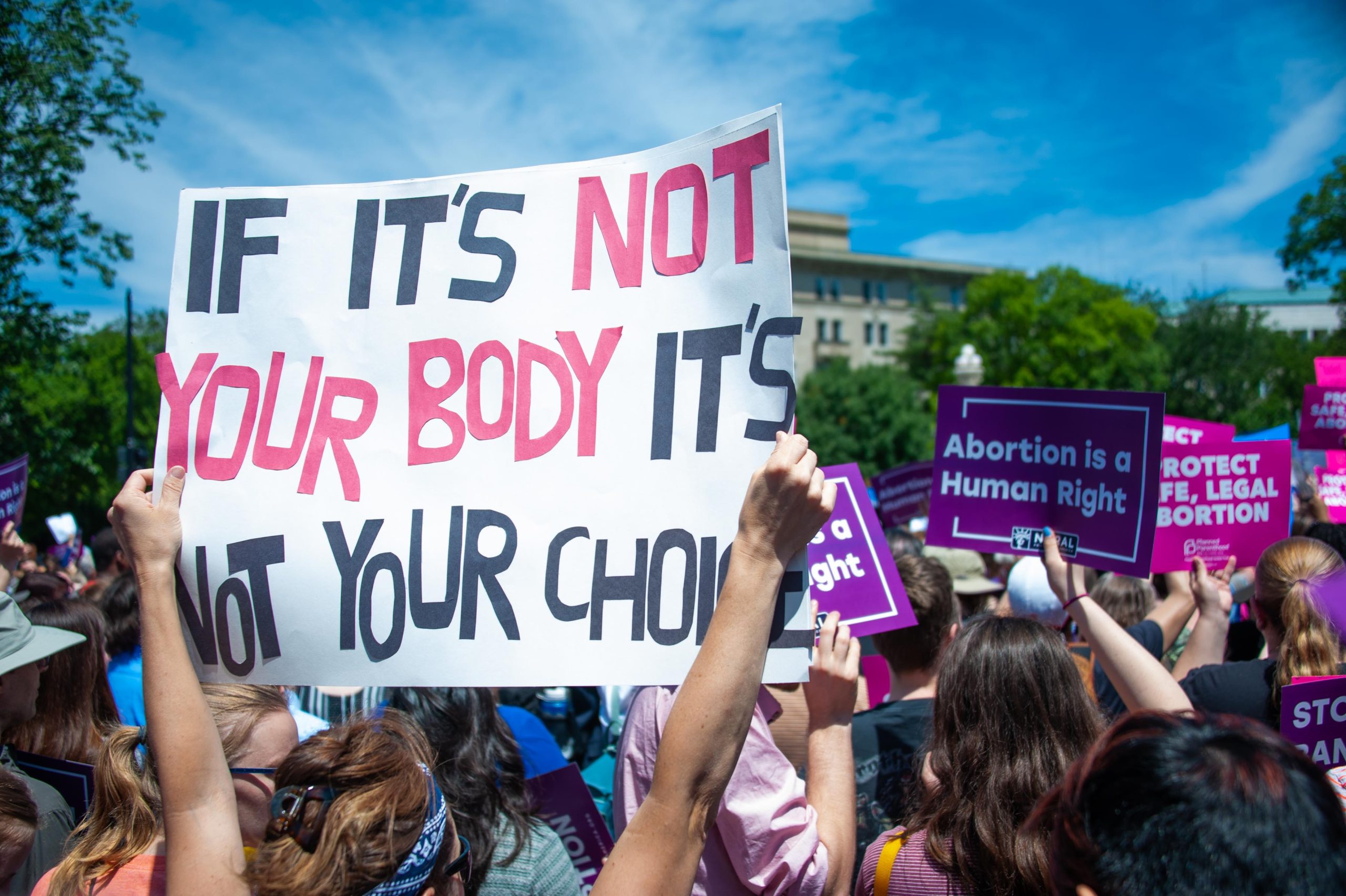If Supreme Court Rules Neither Abortion Providers nor DOJ Can Challenge S.B. 8, No Right Is Safe.

For non-lawyers trying to follow the various legal challenges to Texas’s six-week abortion ban known as S.B. 8, the twists and turns can be confusing. What might surprise some is that the current dispute is less about whether there is a constitutional right to abortion—after all, the Supreme Court has repeatedly recognized that there is—and more about whether anyone can actually defend that right in court against Texas’s attack.
Recall that last month, the Supreme Court refused to stop S.B. 8 from going into effect in a lawsuit brought by abortion providers, citing “complex and novel antecedent procedural questions” that required, at a minimum, further briefing on the merits.
In light of that ruling, the United States Department of Justice brought a different lawsuit challenging S.B. 8 that avoids many of the “procedural questions” cited by the Court. The providers also filed a request asking the Court to expedite consideration of their case on the merits.
The Supreme Court agreed to hear both cases on November 1st. That means that soon we will learn whether, as some commentators have suggested, those complex procedural questions cited by the Court were merely a cover for its hostility to the constitutional right to abortion.
As a practical matter, the Court only needs to find that one of the two suits can go forward to create a path for the lower courts to stop S.B. 8. (Remember, there’s no question that S.B. 8 itself is unconstitutional.) But as a matter of law, the Supreme Court should hold that both cases can proceed.
In the providers’ case, the chief question is whether the case fits within a doctrine developed in a 1908 Supreme Court case called Ex parte Young. In that case, the Supreme Court held that in order to vindicate the federal interest in ensuring the supremacy of federal law over state law, state officials could be sued for what lawyers call prospective injunctive relief—that is, a court order saying that they must stop enforcing an unconstitutional law going forward.
There is no doubt that the providers’ challenge to S.B. 8 fits within the Court’s Ex parte Young doctrine. It seeks to stop state officials, including clerks, judges, and the Texas Attorney General, from taking steps that make real the threat that S.B. 8 poses to the right to abortion. If the Supreme Court ruled to the contrary, it would eviscerate the rule of federal supremacy that gave rise to Ex parte Young in the first place, opening the door to widespread nullification of constitutional rights.
This is true even though S.B. delegates the right to file lawsuits challenging abortions that violate its unconstitutional terms to private parties rather than to Texas officials. If that were enough to make S.B. 8 unreviewable, state legislative majorities could defeat all manner of bedrock constitutional rights—not only the right to abortion, but also countless other rights, including the rights to freedom of speech and the free exercise of religion—by the simple device of delegating enforcement to the state’s populace.
In the United States’ case, a chief question will be whether the DOJ can sue to vindicate the public interest, even without citing a particular law that authorizes it to do so.
The answer is yes here too. In a long line of cases, grounded in principles of sovereignty, federal supremacy (again), and the duty of the executive to “take care that the laws be faithfully executed,” the Supreme Court has repeatedly recognized the right of the federal government to sue in federal court to vindicate the public interest. Most prominently, in an 1895 case called In re Debs, the Supreme Court recognized that the United States could seek injunctive relief in cases that “affect the public at large, and are in respect of matters which by the constitution are intrusted to the care of the nation, and concerning which the nation owes the duty to all the citizens of securing to them their common rights.”
Under even the narrowest construction of the Debs decision, the Supreme Court should find that the United States has the right to sue Texas because S.B. 8 imposes a substantial burden on interstate commerce, creates a crisis for the rule of law in the United States, and has produced a scenario in which it is exceedingly difficult for private individuals to exercise and enforce their own Fourteenth Amendment rights to abortion.
By stepping in to defend the federal Constitution against Texas’s “not only unusual, but unprecedented” attack on the right to abortion, both the federal government and Texas abortion providers are seeking to vindicate the supremacy of federal law and the rule, at the heart of our legal system, that where there is a right there is a remedy. Regardless of one’s personal views on abortion, if the Supreme Court rules that neither of these cases can proceed, we are all in big trouble.
